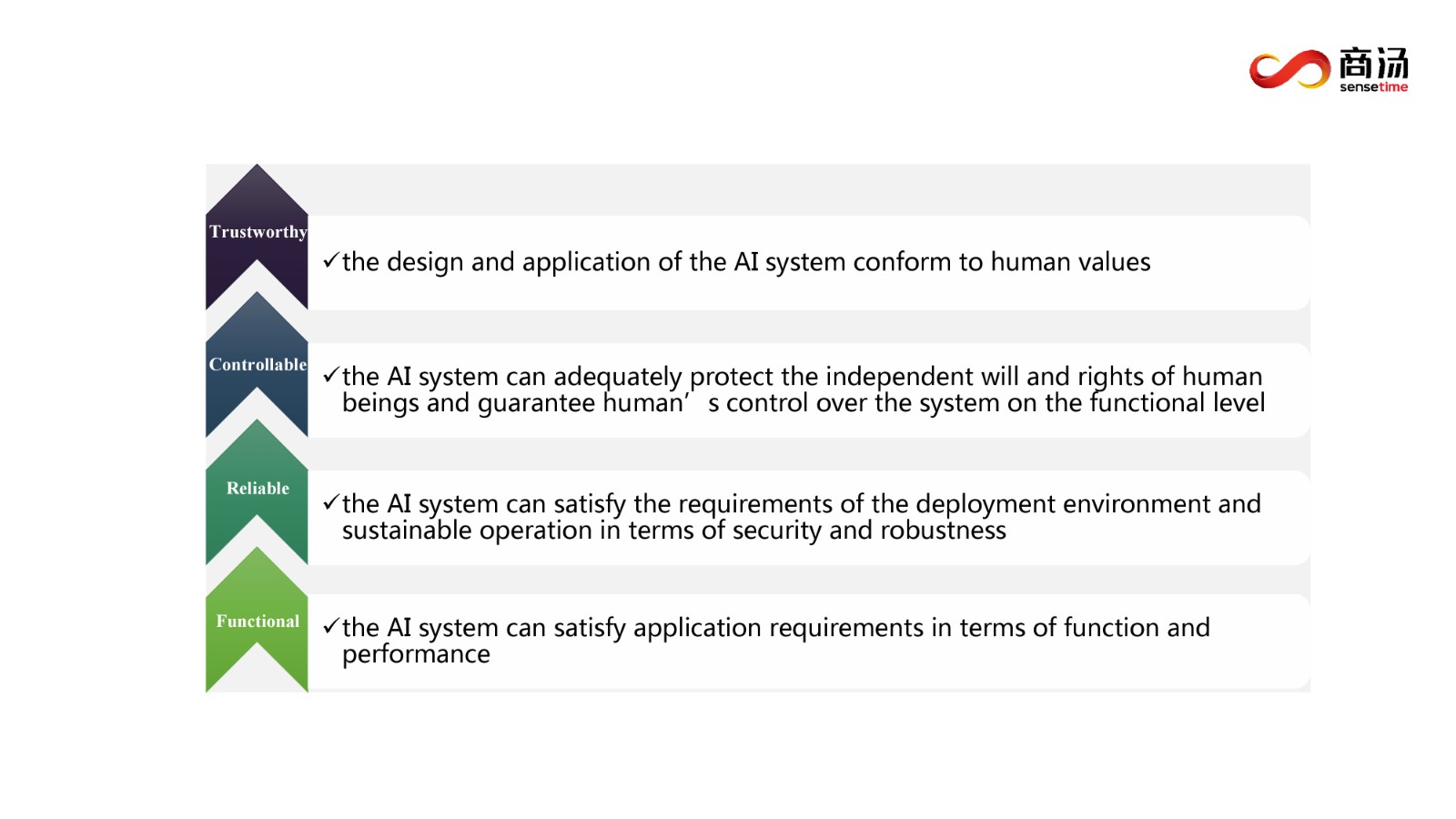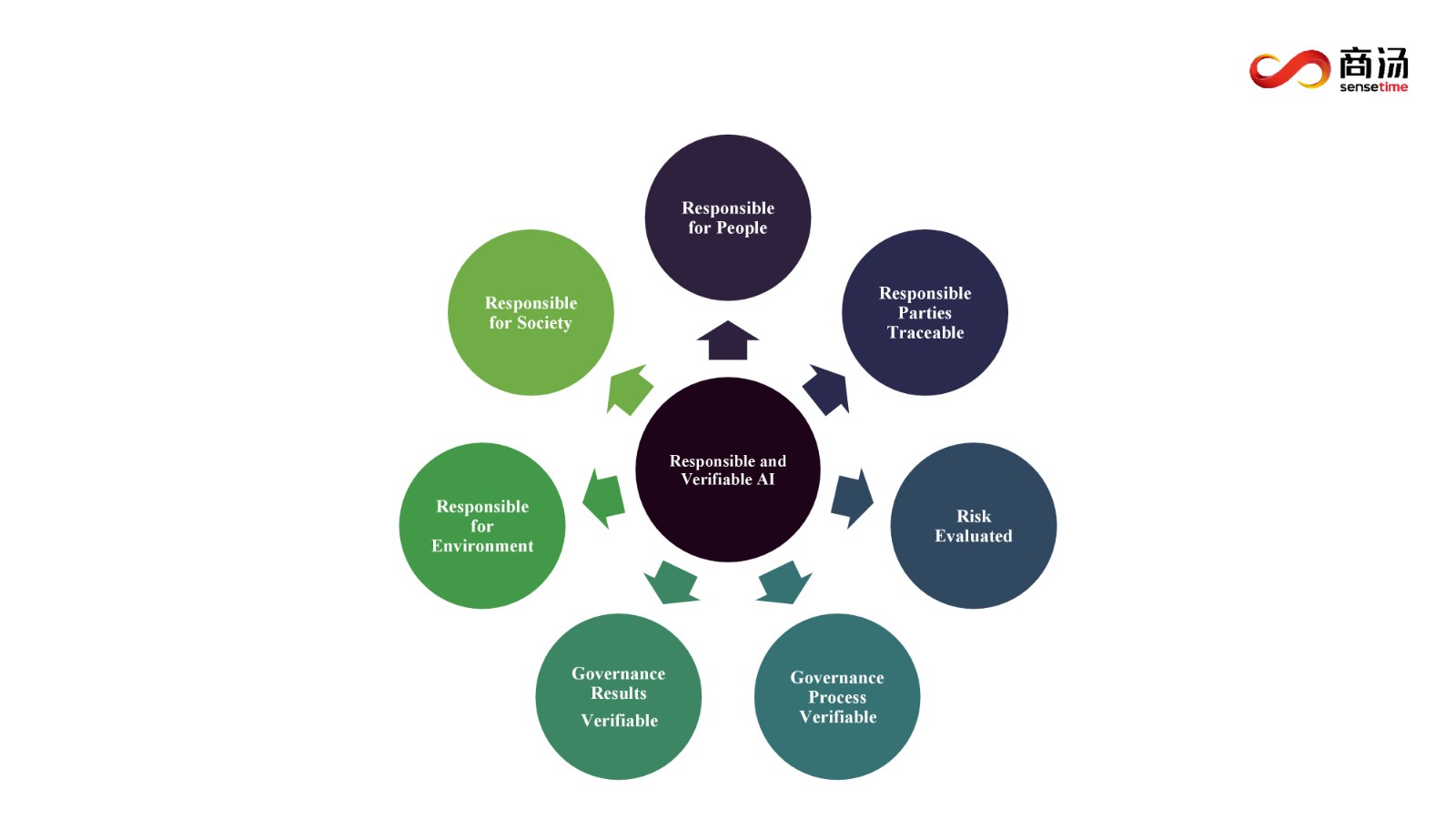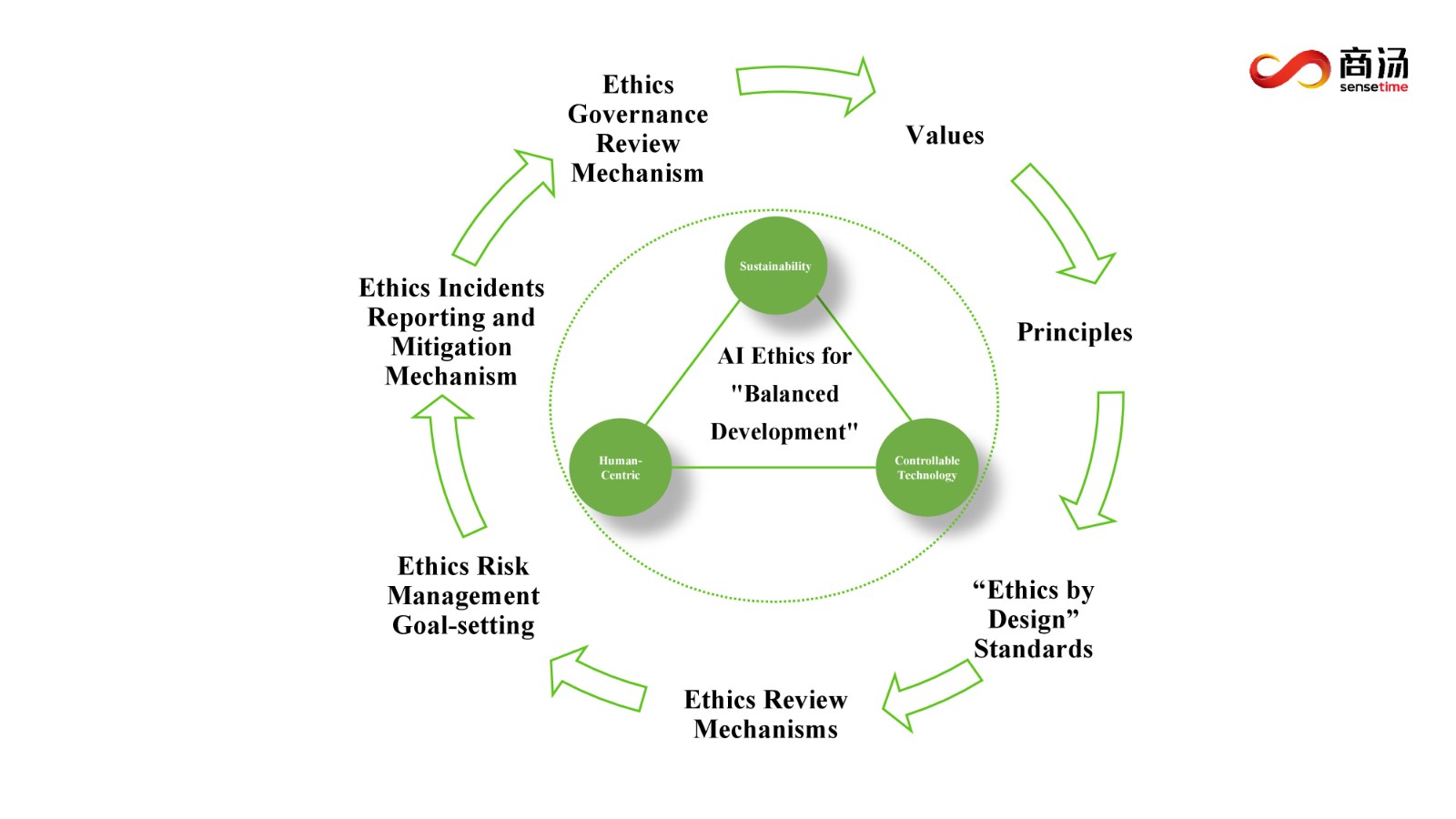- News and Stories
SenseTime Launches AI Governance White Paper, Highlights Need for Responsible and Verifiable AI
September 5, 2022, Shanghai – SenseTime released its latest white paper "AI Governance for Balanced Development" at the 2022 World Artificial Intelligence Conference(WAIC). The white paper expounds SenseTime’s insights, goals and achievements in promoting AI governance.
Tian Feng, Dean of SenseTime's Intelligence Industry Research Institute, was invited to attend the 2022 WAIC and share key massages in the white paper. During the speech, Mr. Tian stated that AI governance has entered the “Stage of Implementation” in which companies and their stakeholders should promote transparency through technical verification.
As more companies around the world use AI in their products and services, cultivating public trust in AI technologies remains a key step in unleashing the potential of AI. This year, regulators and organizations in Singapore, the European Union, the United States, China and other countries released several AI governance toolkits and sandboxes to promote the implementation of AI governance.
"As the world's leading AI software company, SenseTime actively promotes the importance of AI ethics and governance based on its three core ethical principles of responsible AI: sustainability, applying a human-centric approach, and controllable technology. As AI governance enters the next stage, developing responsible and verifiable AI is SenseTime’s next goal to help the industry improve the trustworthiness of their AI products and services," said Tian Feng.
Four levels of AI governance to develop responsible and verifiable AI
Establishing a comprehensive AI governance system is the first step to developing responsible and verifiable AI, which is a core component of ethical AI to build trust in the technology. Over the years, AI governance has moved from discussion on principles (Stage 1.0) and discussion on policies (Stage 2.0) into technical verification for industry applications (Stage 3.0). To accelerate the implementation of AI ethics governance, in this white paper, SenseTime shares thought-provoking ideas on how to best administer AI governance noting that it is a dynamic process driven by value, supported by technical tools, implemented with collaboration and achieved through hierarchical progression. SenseTime also presents the hierarchy of AI governance, which is divided into four levels: Functional, Reliable, Controllable and Trustworthy, covering the functionality, security and robustness, controllability and ethical requirements of AI governance.

Hierarchy of AI Governance
Source: Institute for AI Industry Research, SenseTime
By Implementing AI governance throughout the whole life cycle of product design, research and development, release and operation, companies will build a greater public trust towards the use of AI.

Core Requirements for Responsible and Verifiable AI
Source: Institute for AI Industry Research, SenseTime
Robust internal initiatives to reinforce AI ethics efforts
SenseTime not only attaches a high level of importance to the innovation and R&D of AI, but also places AI ethics and governance as a top priority. In January 2020, the company established the Committee of AI Ethics and Governance to promote the construction of an AI ethical governance system, and ensure AI governance is applied throughout all aspects of operations.
Information security and data privacy protection are always among the top priorities for SenseTime. Accordingly, the company established a dedicated Data Security and Personal Information Protection Committee, which is responsible for the strict implementation and promotion of data security control measures.
SenseTime has also established a strict ethical risk control system and ethical review mechanism to devise ethical review and risk control standards and set up AI ethical review procedures.
In order to promote responsible and verifiable AI, SenseTime continuously improves its AI ethics governance system. The company has established a comprehensive product review process covering the product design, development and deployment. Trainings on ethical risk control and review mechanism are also provided for employees to safeguard the smooth operation of ethical risk control and review.
To ensure the implementation of the AI governance system, SenseTime introduced mechanisms to effectively manage ethical risks including Ethics Risk Management Goal-setting, Ethics Incidents Reporting and Mitigation Mechanism, Ethics Governance Review Mechanism. A series of internal process tools and technology platforms covering data governance, algorithm evaluation, model examination, and ethical review have also been developed and deployed.

SenseTime’s closed-loop AI governance system to promote responsible and verifiable AI
At 2022 WAIC, Gong Chao, Head of Technology Policy and Ethics Research at SenseTime's Intelligence Industry Research Institute also participated in a panel discussion titled “Embracing technology governance systems to empower a path to sustainable development”. Mr. Gong shared SenseTime’s views on AI governance along with various industry applications.
Promoting the need of responsible and verifiable AI is a never-ending goal, and it will always be a fundamental strategy for SenseTime as it expands and diversifies its technology offerings. SenseTime will continue to work to promote fair, responsible, and legally complaint applications of AI technology, and strive to improve the quality of its products and services.







 Return
Return